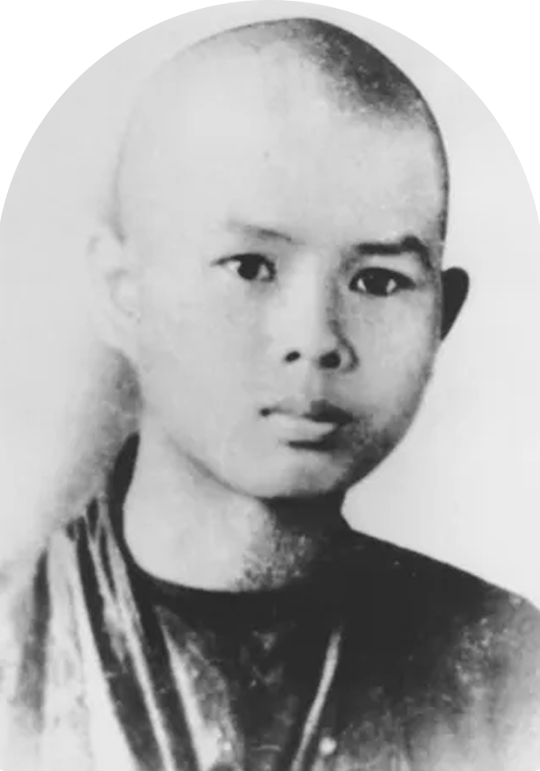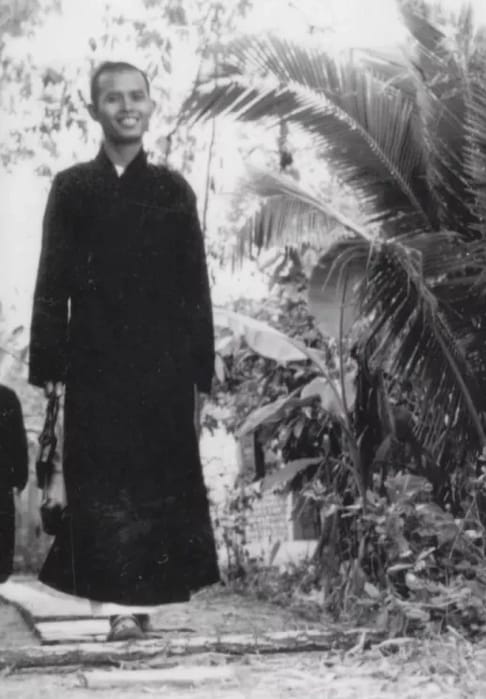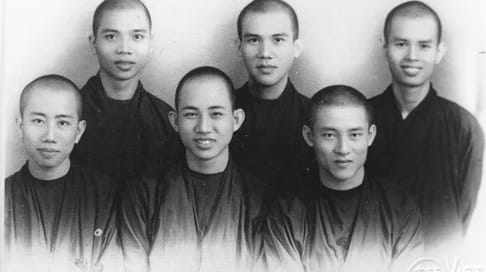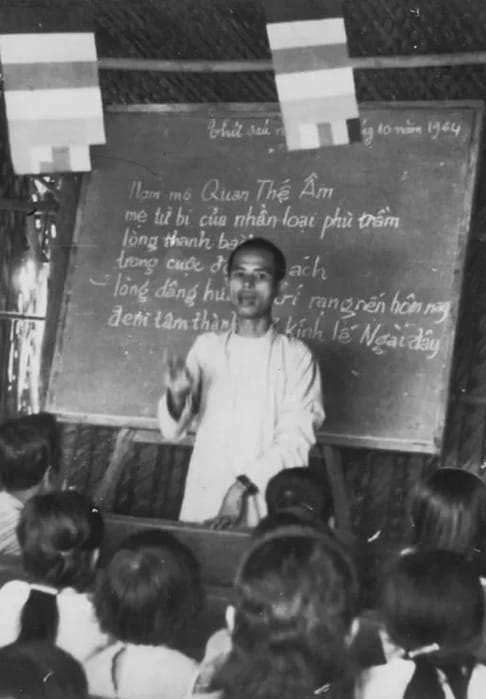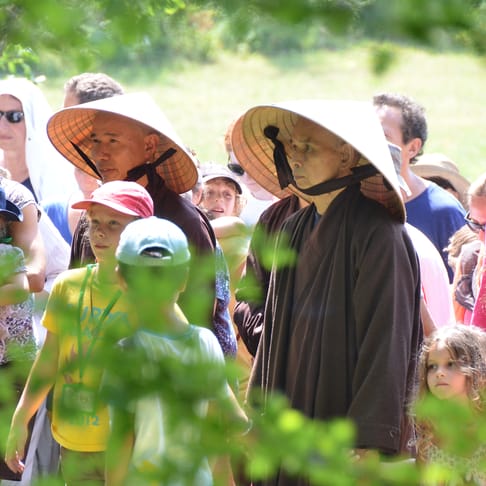In July 1954, following the Geneva Accords, which officially ended hostilities between the French and the Viet Minh, Vietnam was divided into two. The North became communist and the South soon became anti-communist, supported by the U.S. The separation of the country ushered in a turbulent time, with huge numbers migrating from North to South, in an atmosphere of confusion and uncertainty. To strengthen their voice and collect their energy, Buddhist leaders formed a National Buddhist Association in 1951 (Tổng Hội Phật Giáo Việt Nam) of all the schools and lineages in the South.
The board of the An Quang Institute invited Thay back to Saigon to help stabilize and renew the program of studies and practice for the young generation of monks and nuns, many of whom were drawn to Marxist ideals; or, feeling that Buddhist courses were neither rigorous nor relevant, were drawn by the promise of diplomas in secular professions, like medicine or engineering. Thay was charged with creating a more relevant and inspiring Buddhist program, which would also, for the first time, offer them a diploma comparable to secular courses.
While teaching at An Quang, Thay took the baccalauréat exams at Vuong Gia Can High School in Saigon, and in 1954 was accepted into the first cohort at the newly-opened Faculté des Lettres de l’Université de Saigon. He completed his university studies while continuing to teach and publish his own poems, articles, and books, and was awarded a BA in French and Vietnamese Literature. He also continued to write and publish his own poems, articles and books.
Thay’s time at the An Quang Institute was chronicled in the unpublished memoirs of Tri Khong.



